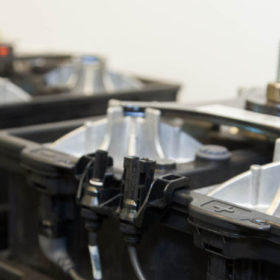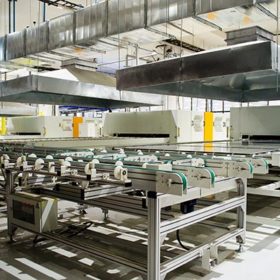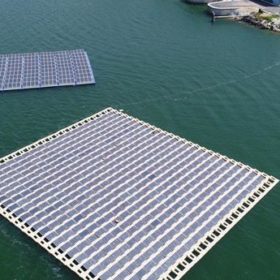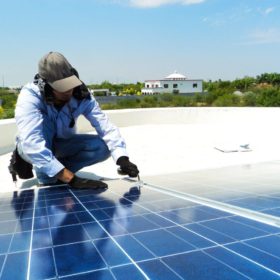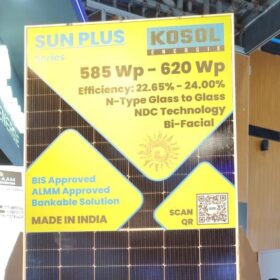MNRE extends ALMM enlistment date for solar cell and module manufacturers
Due to temporary disruptions caused by Covid-19 epidemic and the current lockdown, the Ministry of New and Renewable Energy (MNRE) has notified six months extension in the effective dates for the Approved List of Models and Manufacturers (ALMM). The list is now set to apply from the end of September 2020.
Hitachi gets CCI nod to buy 80.1% stake in ABB’s power grid arm
Japan-based Hitachi will buy an 80.1% per cent stake in the Swiss major’s power grids business in a deal that values its grid business at US$ 11 billion.
Covid-19 impact on India’s energy storage industry
The onset of Covid-19 has brought into focus the critical importance of indigenization and localization of battery cells as a series of disruptions in the supply chain for Li-ion batteries will also affect Indian electric vehicles and stationary energy storage market.
European investor ThomasLloyd, SolarArise launch 75 MWp solar project in Uttar Pradesh
The project—requiring investment of 34.9 million euros—will be built by EPC contractor Jakson with modules supplied from JA Solar.
Tata Power Solar bags 300 MW CPSU II project from NTPC
The grid-connected solar project—scheduled for commissioning in September 2021—is valued at Rs 1730.16 crore and will be developed using Tata Power’s own cells and modules.
Covid-19 impact: An interview with Amp Energy India CEO
Pinaki Bhattacharyya, Amp Energy India MD and CEO, speaks to pv magazine about the impact of Covid-19 pandemic on the solar industry and the ways in which the government can build a positive sentiment in the industry.
SCCL tenders 15 MW (AC) grid-interactive floating solar
May 4 is the deadline to submit bids for the solar capacity which shall come up at the state-owned coal miner’s Singareni Thermal Power Plant storage reservoir (10 MW) and Dorli open-cast project void (5 MW) in Telangana.
WoodMac predicts India’s renewables installation to fall by a fifth due to lockdown
Over 21.6% or 3 GW of solar and wind installations will get delayed due to supply and labour disruptions caused by the ongoing Covid-19 lockdown, according to the analysts which in a January report forecast the country to add over 15 GW of renewable capacity this year.
Covid-19 lockdown: MNRE asks Discoms not to stop payments to renewable power producers
The clarification came after States reacted wrongly to the power ministry’s recent order providing a moratorium on conventional power payments and started stopping payments or curtailing renewable power.
CEL extends EOI submission deadline for solar EPC empanelment
Interested solar EPC contractors can now submit expressions of interest till April 30 to get empaneled with the state-owned Central Electronics Limited.



